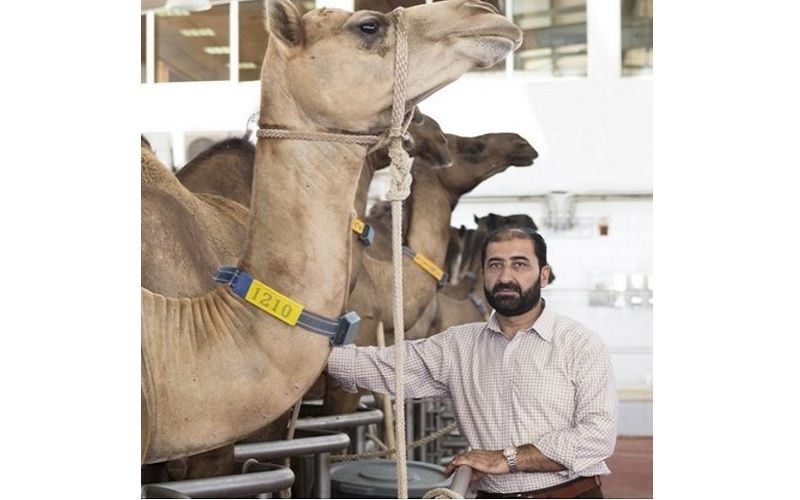Unraveling the Complexities of German Farmers' Protests
Tractors rumbling through the streets of the capital, blocking highway interchanges—scenes reminiscent of neighboring France. However, German farmers have been asserting their concerns over the past few weeks.

Protests began in late December following the center-left government's announcement of ending diesel subsidies and agricultural vehicle tax exemptions. Despite Berlin's subsequent commitment to phasing out fuel subsidies within two years and retaining tax breaks for tractors, protesters remain dissatisfied.
So, how is Germany's agricultural sector really faring?
Recent years have seen rising food prices benefit German farmers. The German Farmers' Association (DBV) reports that the average full-time farm made €115,000 ($125,000) in profit in 2022/23, reflecting a 45% increase in just two years.
Despite these profits, farming is a demanding and round-the-clock occupation. The DBV emphasizes that earnings, when compared to butcher's stores or bakeries, are not exceptionally high. Additionally, farms often employ unsalaried family members. Even when factoring in these considerations, average profits still appear healthy compared to the average wage in Germany.
While state diesel subsidies save full-time farms several thousand euros annually, it remains a small fraction of their profits.
How significant is German agriculture?
Although not a prominent aspect of Germany's industrial powerhouse image, agriculture contributes to just under 1% of the country's GDP—less than in neighboring France and Poland. However, Germany leads the EU market in milk, pork, and potatoes and has increased its market share in various produce over the last decade.
Beyond economics, Joachim Rukwied, head of the German Farmers' Association, argues that the future of farming families and the country's food security is at stake.
Why have planned cuts triggered such a strong reaction?
According to Karsten Hansen of the German Dairy Farmers Association (BDM), the protests go beyond diesel and tax breaks. The subsidy cuts announcement was merely the tipping point, revealing deeper concerns within the agriculture sector.
Despite outward prosperity, German agriculture exhibits nuances. Profits vary based on the type of agricultural business, region, or farm size. Over the past decade, the number of farms in Germany has been decreasing, with small farms declining while big farms grow.
As the German government addresses a €17 billion ($18.6 billion) budget gap for 2024, many farmers feel unfairly burdened. The German Farmers' Association insists on rolling back plans to eliminate all diesel subsidies by 2026, arguing that it would spell a slow death for German agriculture.
The complexity of EU subsidies adds another layer. While Germany receives €6 billion annually from the Common Agricultural Policy (CAP), large farms benefit more from direct payments based on size. German farmers, in comparison to their European counterparts, face a competitive disadvantage due to factors like higher minimum wages and diesel taxes.
What lies ahead?
Green MEP Martin Häusling stresses the need for agriculture to adapt to climate change. However, he advocates for more dialogue between policymakers and farmers, emphasizing the importance of adequately funding and supporting the transformation process.
Norbert Lins, a Christian Democrat MEP, acknowledges the time required for implementing new regulations and underscores the need for farmers to plan ahead. He emphasizes the significant financial burden on farmers when making substantial investments.
Agricultural policy specialist Thomas Herzfeld warns that delays in addressing climate targets could intensify pressure for a more rapid and radical transformation in the agricultural sector. The need for clear explanations about the necessity and methodology of change becomes increasingly urgent.
So, how is Germany's agricultural sector really faring?
Recent years have seen rising food prices benefit German farmers. The German Farmers' Association (DBV) reports that the average full-time farm made €115,000 ($125,000) in profit in 2022/23, reflecting a 45% increase in just two years.
Despite these profits, farming is a demanding and round-the-clock occupation. The DBV emphasizes that earnings, when compared to butcher's stores or bakeries, are not exceptionally high. Additionally, farms often employ unsalaried family members. Even when factoring in these considerations, average profits still appear healthy compared to the average wage in Germany.
While state diesel subsidies save full-time farms several thousand euros annually, it remains a small fraction of their profits.
How significant is German agriculture?
Although not a prominent aspect of Germany's industrial powerhouse image, agriculture contributes to just under 1% of the country's GDP—less than in neighboring France and Poland. However, Germany leads the EU market in milk, pork, and potatoes and has increased its market share in various produce over the last decade.
Beyond economics, Joachim Rukwied, head of the German Farmers' Association, argues that the future of farming families and the country's food security is at stake.
Why have planned cuts triggered such a strong reaction?
According to Karsten Hansen of the German Dairy Farmers Association (BDM), the protests go beyond diesel and tax breaks. The subsidy cuts announcement was merely the tipping point, revealing deeper concerns within the agriculture sector.
Despite outward prosperity, German agriculture exhibits nuances. Profits vary based on the type of agricultural business, region, or farm size. Over the past decade, the number of farms in Germany has been decreasing, with small farms declining while big farms grow.
As the German government addresses a €17 billion ($18.6 billion) budget gap for 2024, many farmers feel unfairly burdened. The German Farmers' Association insists on rolling back plans to eliminate all diesel subsidies by 2026, arguing that it would spell a slow death for German agriculture.
The complexity of EU subsidies adds another layer. While Germany receives €6 billion annually from the Common Agricultural Policy (CAP), large farms benefit more from direct payments based on size. German farmers, in comparison to their European counterparts, face a competitive disadvantage due to factors like higher minimum wages and diesel taxes.
What lies ahead?
Green MEP Martin Häusling stresses the need for agriculture to adapt to climate change. However, he advocates for more dialogue between policymakers and farmers, emphasizing the importance of adequately funding and supporting the transformation process.
Norbert Lins, a Christian Democrat MEP, acknowledges the time required for implementing new regulations and underscores the need for farmers to plan ahead. He emphasizes the significant financial burden on farmers when making substantial investments.
Agricultural policy specialist Thomas Herzfeld warns that delays in addressing climate targets could intensify pressure for a more rapid and radical transformation in the agricultural sector. The need for clear explanations about the necessity and methodology of change becomes increasingly urgent.
Key News of the Week









